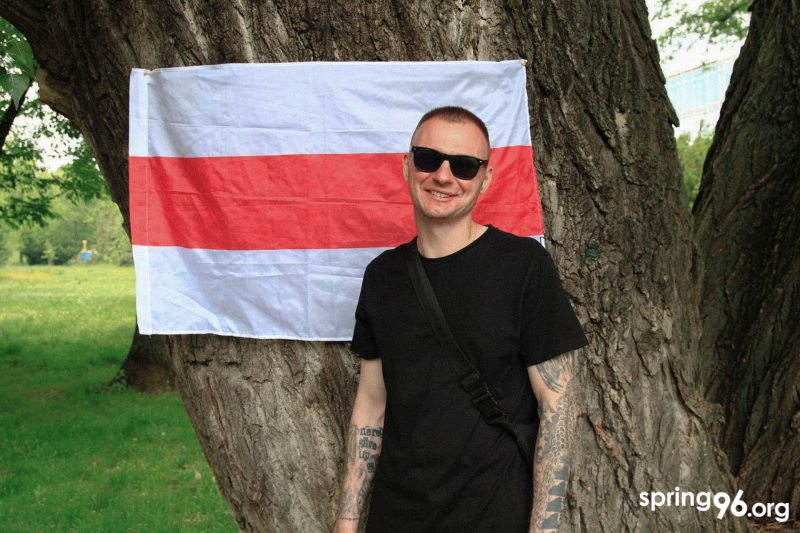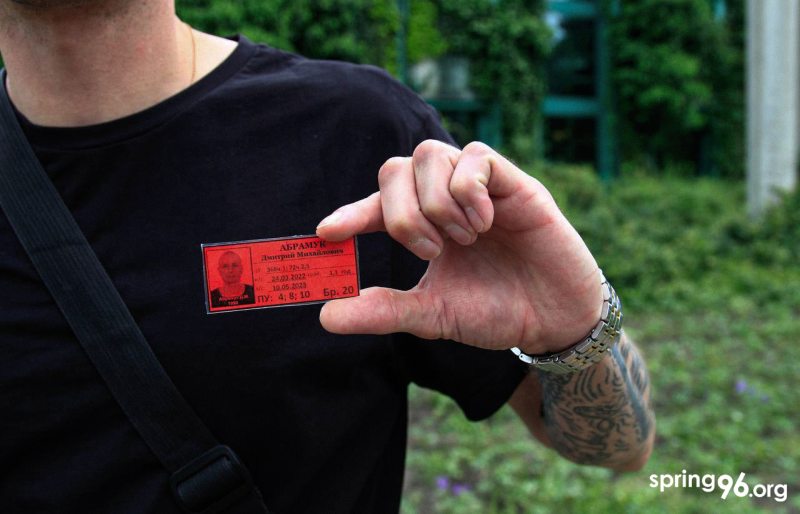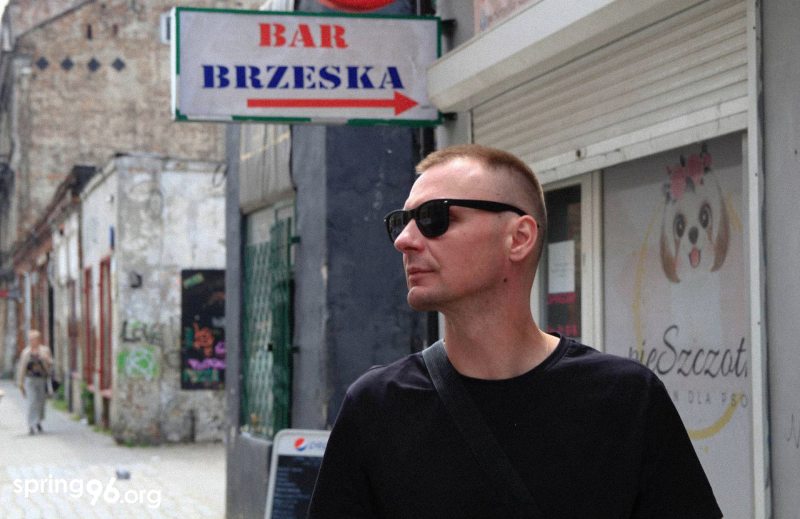Behind bars in Belarus: A former political prisoner's account on the red label and restricted freedom
One rarely gets an authentic insight into the conditions and practices inside Belarusian prisons, known for their severity and opaque functioning. However, Dzmitry Abramuk, a former political prisoner released on April 22, 2023, provides an eye-opening account of life within these institutions, shedding light on the grim experiences of political prisoners under the regime of Aliaksandar Lukashenka.
Journey into the prison system

- Dzmitry Abramuk. Photo: Spring96
Dzmitry's journey into the prison system started in 2020 when he was arrested for participating in a protest against Lukashenka's rule. Initially, he was sentenced to a “chemistry” — a form of forced labor outside prison, where one has to stay in an open-type penal facility. However, in February 2022, the court decided to toughen his punishment for violating the penitentiary rules. This led to Dzmitry being transferred to Navapolack Penal Colony No. 1, a notorious penal institution for its harsh conditions.
Palchyk's dictatorship inside the prison walls
Overseeing the operations at colony No. 1 was a man named Palchyk, whose leadership style, as per Dzmitry, was reminiscent of a dictator molding a country to his liking. "He built the colony according to his vision," Dzmitry says, highlighting the arbitrary and tyrannical approach that seems to underlie the functioning of the penal institution.
Rules at penal colony No. 1 were comprehensive and rigid, covering everything from how prisoners arranged their personal items to how they wore their clothes. Any deviations were met with severe penalties.
Disturbingly, the punitive measures were the same, regardless of the crime. Murderers and political dissenters were treated with the same level of severity. Such indiscriminate application of harsh punishments particularly troubled Dzmitry regarding cases like that of an older man who was incarcerated after his grandson had unwittingly 'liked' a prohibited item on social media. He emphasized that while strict control might be necessary for hardened criminals, it was unjust for those imprisoned for political reasons or minor infractions.
Despite the notorious reputation of penal colony No. 1 and rumors of rampant physical violence, Dzmitry insists he was never personally subjected to beatings. However, he does admit to experiencing physical pain on two occasions — once due to a fall down the stairs while handcuffed and another time during a punitive exercise.
The red label and restricted freedom
In Viciebsk pre-trial detention center, Dzmitry was issued a red label, which accompanied him to the colony. In Belarus, only a few political prisoners have such a label. Those convicted on political charges are placed under preventive supervision, as they are deemed prone to extremist or other destructive activities and are given a yellow label. Due to Dzmitry's red label, he was once again restricted from going to work, had limited movement within the colony, and was required to check in every hour.

- Dzmitry demonstrates the red tag given to him in the colony. Photo: Spring96
"In our colony, there were four individuals with red labels, and I was among them. All political prisoners work six days a week in the industrial zone, but I had to always stay in the barracks and check in every hour. But eventually, I got used to it and didn't pay much attention.”
Freedom as a fragile notion
Dzmitry was moved to a penal-type cell for four and a half months, where he completed the remainder of his sentence. Outside, his friends worriedly began strategizing his exit from the country.
Upon release, Dzmitry quickly realized that his freedom was nominal at best. The constant police checks and the looming threat of re-arrest were palpable reminders that true liberty was a distant dream in Belarus. He shares, "I left Belarus because I was scared. I didn't want to get imprisoned again."
Continued fight for freedom and dignity
Returning to his hometown, Brest, Dzmitry was disheartened by the sight of people parading with state-flag-colored ribbons and balloons, indicating their allegiance to the regime. This spectacle made him ponder whether too few "good" people were left in the country, with many having already fled due to political pressure. His friends in Belarus, he recalls, detested the oppressive political climate, particularly the fear of retribution for expressing their views on social media, but felt powerless to effect any change.
Despite being placed on the “List of Extremists,” Dzmitry managed to exit Belarus unhindered. Reflecting on his ordeal, he acknowledges that the global solidarity actions did much to uplift his spirits during his time behind bars. "These solidarity actions abroad encouraged me a lot. Other political prisoners, too, were supported by them, I believe. It shows that people outside have not forgotten about them," he shares.

- Dzmitry Abramuk. Photo: Spring96
He further urges for larger-scale demonstrations and increased coverage by international media to ensure that the plight of Belarusian political prisoners remains in the global spotlight. However, Dzmitry asserts that supporting political prisoners' relatives and loved ones is just as important. He fondly remembers his mother being gifted flowers by a stranger who commended his bravery, a gesture that he says brought both of them a sense of warmth and reassurance.
Through his account, Dzmitry underlines the need for more initiatives and organizations that support former political prisoners who have recently been released or have fled the country. While he acknowledges the toll his experience took on his health and time, he has no regrets about his chosen path. What matters most, he stresses, is the continued fight for freedom and dignity, both for himself and for his fellow Belarusians.

















